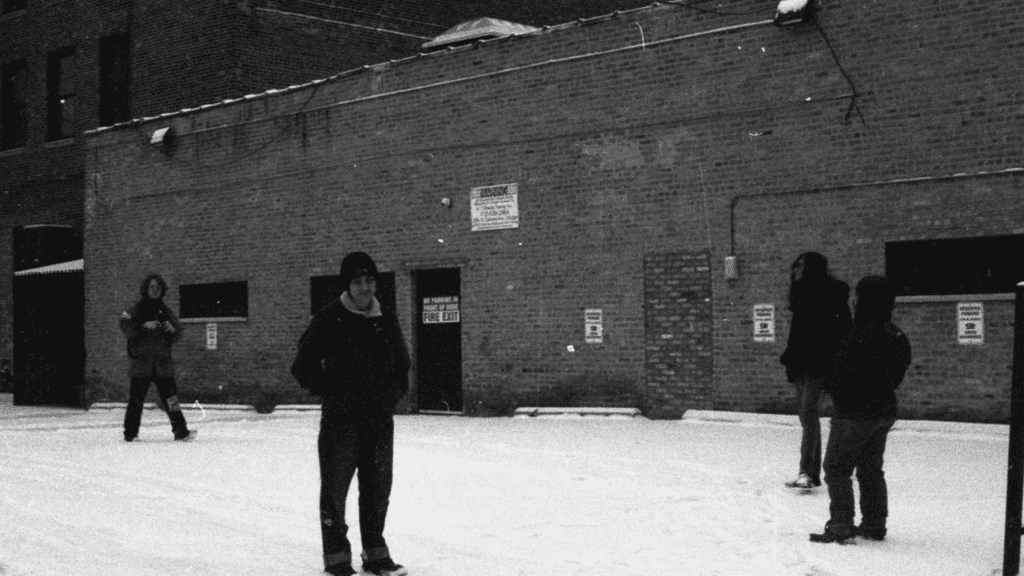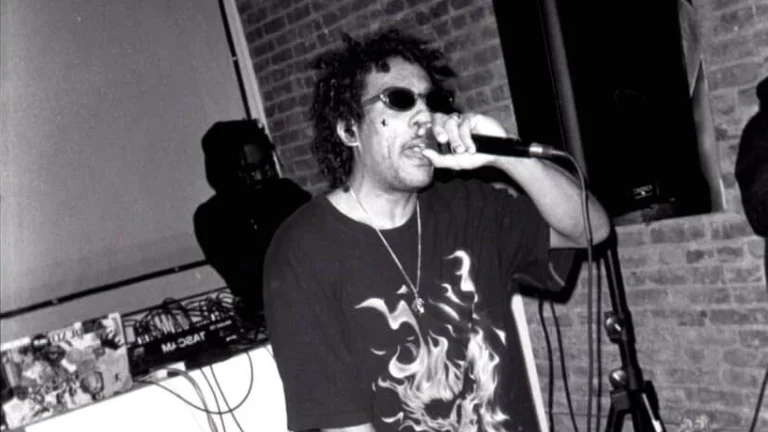Five-piece indie rock project Deerest Friends is a relative newcomer within Chicago’s convoluted alternative music scene and its dream pop, lo-fi, and rock subcultures, although the members aren’t necessarily. The members in question include Francis Brazas, Charlie Johnston, Will Huffman, Nathan McMurray, Desi Kaercher, and Xochimilco Cortez—all of whom have links to Trash Tape Records and are parts of more established bands, including Post Office Winter and Dwaal Troupe. Yet, this supergroup does not seem to want to steer too far from the kind of music mostly associated with and inspired by the aforementioned sounds under the umbrella of that community.
The common denominator between its indie and alternative music acts is how youth-centric and teen-oriented they can get. This phenomenon could partially be justified by many of them meeting and forming at after-school activities in and around the suburbs of Chicago, which explains why—quite ironically—the sound associated with many of these acts does scream teenage angst—the non-kitschy kind. The sonic directions these bands typically align with don’t steer too far from “standard” definitions of alternative rock.
At the very least, that’s what Deerest Friends’ debut effort, Lamb Leaves Pasture, implies from both a sonic and an aesthetic standpoint, although it does lean a lot more heavily on the overall indie rock sound than lo-fi.
Their debut album, a 12-track June release, does its best to encompass the signature power pop, indie rock, and indie folk sounds of each Deerest Friends member while retaining a distinctive lo-fi sound. With that in mind, both the lyricism and the instrumentation presented throughout the project lay a solid baseline for what to expect from the ensemble going forward and emulate the caliber of work expected from acts like Dwaal Troupe and Post Office Winter. But it does not come without its weaknesses—the most explicit and jarring of which is the sound mixing of the tracks, which does appear to compromise how the vocals blend in with the instrumentation at several different times.
The engineering and sound mixing—both attributed by the album’s liner notes to Dwaal Troupe’s Francis Brazas—presents a major issue when integrating a more seamless and enjoyable Lamb Leaves Pasture listening experience. The project appears to have a clear storyline about a couple that listeners must follow through, interpret, and decipher, all of which are more challenging due to the mixing. It is particularly difficult on the track “My Little Love”—although the reversed sung and vocalized lyrics could partially be the cause. Improved mixing would have aided the music in reaching its full potential and provided a cleaner slate for illuminated vocals, in all their raw emotion, throughout the project.
If the Deerest Friends project intended for this debut LP to set the record straight on the sonic directions the group will be venturing towards, the goal has been—for the most part— achieved. The narrative appears to be laid down and sung from both parties’ points of view, exploring the ideas of unrequited love, belligerent tension, and emotional tugs-of-war, among other ideas.
The greatest highlights of Lamb Leaves Pasture include “Prettiest Polar Bear Paws” for successfully evading most of the issues pertinent to sound mixing, bringing the full potential of the LP—and, by proxy—Deerest Friends center stage with a track evocative of the album’s goal of amplifying feelings of raw love, heartbreak, and everything in between. Another notable highlight is “Song for Claude After He’s Dead,” an instrumental track at the middle of the album as a climax to all the pent-up love and energy expressed in prior songs.
There is still quite a long way to go for the group to carve out a solid, autonomous identity, though—one that does not scream “Chicago indie” quite this loud. There remains plenty of time to lay down the groundwork for said identity, however, and it very well could be the main raison d’être for any of the group’s upcoming ventures for better or worse.





